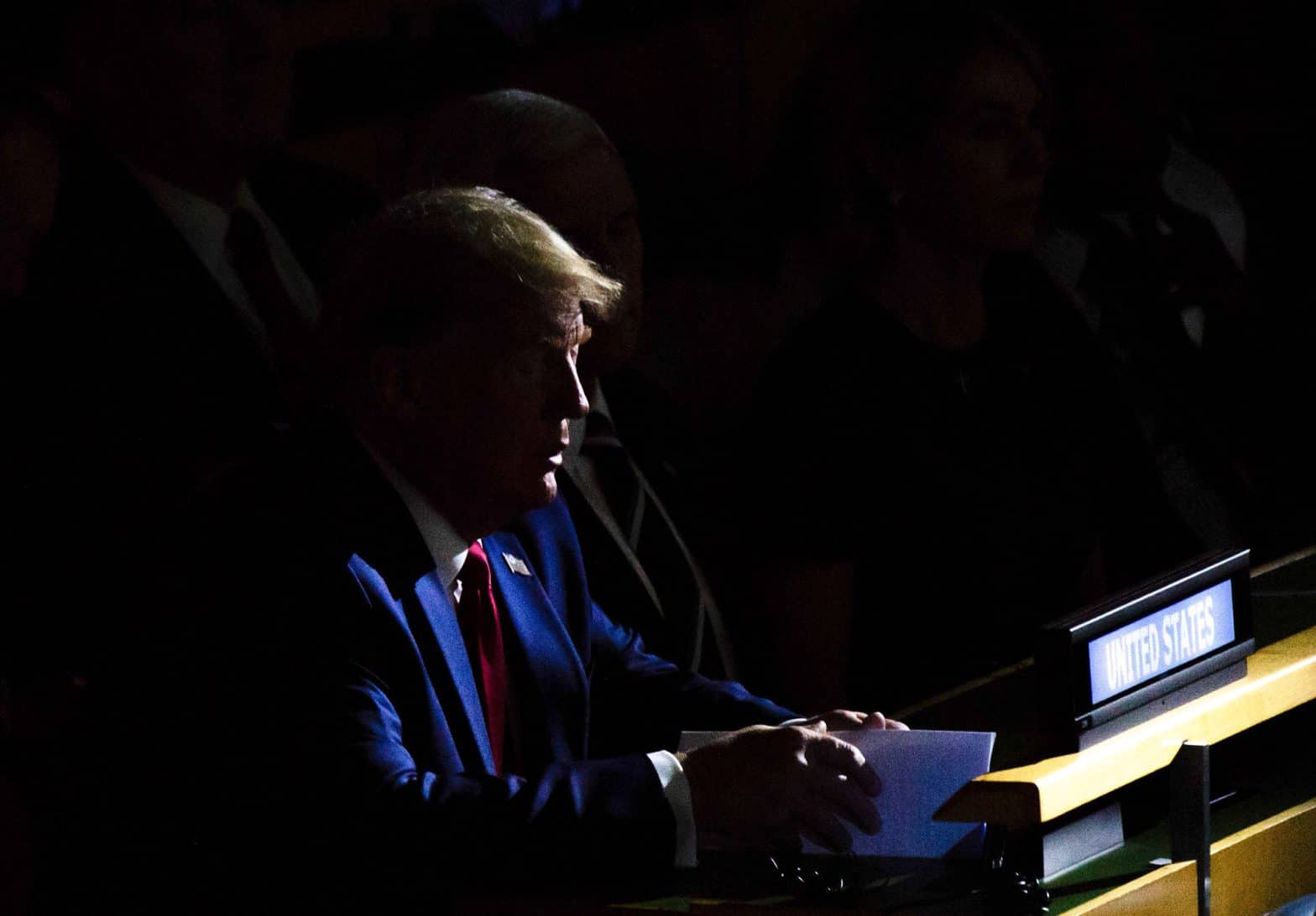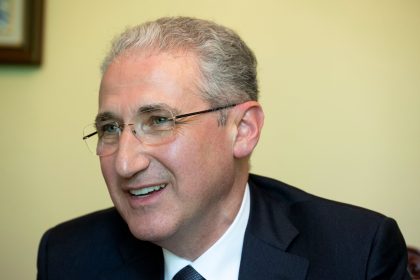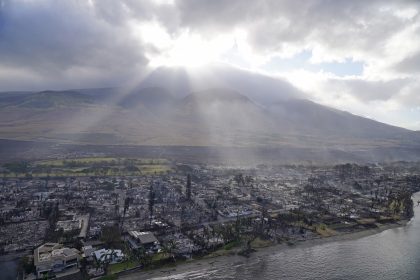From ‘Hoax’ to ‘Serious’: Why One Former Aide Thinks Trump Shifted on Climate Change

WASHINGTON — President Donald Trump’s declaration last month that climate change is a “serious subject” marked the completion of a yearlong shift away from his outright denial of the global threat — a shift, according to one former aide, driven by 2020 politics.
William Happer, one of the nation’s most prominent climate change skeptics who worked on the National Security Council until September, believes that “staff and handlers” convinced the president that his continued dismissal of climate science offered him no political upside — and would likely exact political cost — in the upcoming general election.
It is a disingenuous shift, according to Happer, who remains convinced from their White House meetings that Trump still believes that climate change is a hoax.
Trump “knew a lot about climate — he knew a lot about not only the facts, but also the emotions surrounding it. He was always worried about young people, he said young people have been misled,” Happer said in a recent interview with McClatchy. “I didn’t get the feeling that he needed much education, that he understood there was a lot of nonsense out there.”
Happer joined the White House in 2018, and led a charge within the administration to establish a presidential committee that would have challenged the scientific basis of the Fourth National Climate Assessment, a comprehensive study commissioned by Congress released that fall.
The study warned of severe threats to the environment, the U.S. economy, and human health. Happer has repeatedly questioned the underlying science and dismissed dire warnings of a planet in peril, and had hoped the establishment of a review panel would provide an ex cathedra counterweight to the scientific consensus.
Trump and John Bolton, then the president’s national security adviser, were supportive of his efforts, Happer claimed in a phone call. (He said it was “a shame to see them on such bad terms now.”) But leadership at NASA, NOAA, the Department of Energy and Department of the Interior opposed the creation of the panel and set up procedural hurdles to slow deliberations.
“There was opposition from mostly agencies who were worried that this somehow might affect congressional funding of their budgets,” Happer said, also assigning blame to Trump’s top aides. “His staff, and handlers I suppose, were much less enthusiastic, because there’s no political upside. So they did their best to delay — you know it’s easy to delay things in Washington.”
When Happer left the White House in mid-September, he was told the idea of a panel was on hold, but not ruled out entirely, until a possible second term of the Trump administration. But Happer questions whether the same figures within Trump’s orbit might thwart a review even then, fearful of “burdening” the 2024 Republican nominee with an anti-science reputation.
Environmentalists have long viewed Happer as a symbol of climate change denial, and dismiss the notion that his exit from the Trump administration, or resistance from within it to his policy proposals, amounts to signs of progress.
The Trump administration’s Environmental Protection Agency and DOI have continued to roll back key regulations on fossil fuels that are the primary driver of greenhouse gas emissions.
“This is simply a debate amongst the deniers about what best serves the administration, and to the extent that anyone was opposed, it would be about politics. They’re two sides of the same coin, really,” said Adam Beitman, the national press secretary for the Sierra Club. “It makes sense that they didn’t do this because they would look even more foolish than they already do.”
But Happer believes the criticisms he has faced for his views amount to an assault on scientific review itself. In the absence of an official red team-blue team review, he has taken to his own research, submitting a paper to the EPA that claims an increase in methane emissions, widely accepted to be a potent greenhouse gas, is “irrelevant to global warming.”
In the coming months, he will focus on the next big milestone: the fifth national climate assessment.
No one has approached him to be a part of its drafting. Yet Happer hopes to participate in the process, which could start and finish under Trump’s presidency, unlike the fourth assessment, which was largely written under President Barack Obama.
In the interview, Happer repeatedly praised Trump’s core team — he said he left the administration under good terms after serving for a predetermined, yearlong period — and lauded the president himself as “courageous” for his stance on climate change, including his withdrawal of the United States from the Paris climate accords shortly after taking office.
That decision was opposed by the president’s daughter, Ivanka Trump, and son-in-law, Jared Kushner, both of whom Happer said were part of a contingency of officials that believed a presidential committee reviewing climate science could politically damage the president.
“They may have been right,” he said, offering praise for the two senior aides. “I’ve never won an election in my life.”
Since that time, Trump has deflected questions on his past statements that climate change is a hoax. In July, he delivered a major White House address on the environment that gave his administration credit for a reduction in carbon dioxide emissions since he took office.
Despite the political turn, Happer remains supportive of the president, who in practice continues to expand a deregulatory agenda in line with his views on the realities of climate science.
Happer also believes that Trump’s grasp of science is greater than he lets on.
“The thing that struck me most was not while I was in the White House,” Happer recalled, asked what memories he had of the president remain most poignant. “I did talk to Mr. Trump soon after the election, before he had taken office. And we talked about his uncle, John Trump, who was an MIT professor, and was a very good physicist. He developed Van de Graaff particle accelerators.”
“Mr. Trump must’ve somehow learned something about accelerators there — he remembered that, you know, Van de Graaff accelerators have high voltages, they sparked easily, you had to worry about the radius of curvature of the metal with which you were making this thing. So somehow details stuck in his mind from when he was a kid — a teenager, at most.
“So what strikes me is that he has a very good memory,” Happer continued, “of things that you wouldn’t think would be very important.”
———
©2020 McClatchy Washington Bureau
Visit the McClatchy Washington Bureau at www.mcclatchydc.com
Distributed by Tribune Content Agency, LLC.























